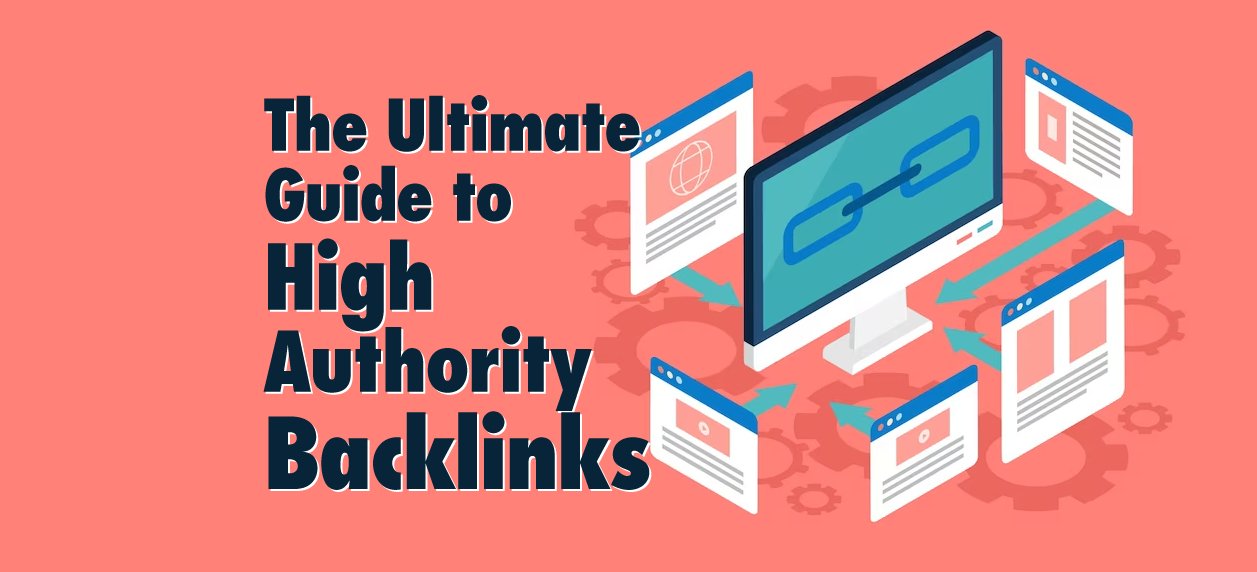If you're looking to skyrocket your blog's search engine rankings and boost your online presence, you've come to the right place. Today, we're diving headfirst into the world of high authority backlinks and how they can turn your blog into an SEO powerhouse.
What Are High Authority Backlinks?
Let's start with the basics. High authority backlinks are like digital endorsements from other websites. When a reputable website links to your blog post, it's like a vote of confidence in your content. Search engines, like Google, consider these backlinks as a sign of trust and quality, which can significantly impact your website's ranking in search results.
The Golden Rule: Quality Over Quantity
Now, don't get us wrong – having a ton of backlinks sounds pretty sweet, but remember the golden rule: quality over quantity. A single high authority backlink from a trusted source can carry more weight than a dozen low-quality ones. So, let's roll up our sleeves and focus on getting the good stuff.
Imagine you're building a house of cards. Each card represents a backlink, and your goal is to create the tallest, sturdiest tower possible. Would you rather have a tower built with a few solid, well-constructed cards, or one that's tall but wobbly due to a pile of flimsy cards? Of course, you'd choose the former, and that's precisely the principle behind valuing quality over quantity in link building.
Search Engine Trust
Search engines, like Google, are on a never-ending quest to provide the best possible results to their users. To achieve this, they've become incredibly adept at evaluating the quality of content and the trustworthiness of websites. When you secure a high authority backlink from a reputable source, you're essentially gaining a vote of confidence from that website. Search engines view this as an endorsement of your content's credibility and relevance.
Let's say you run a blog about fitness, and you manage to get a backlink from the Mayo Clinic's website. Mayo Clinic is a renowned authority in the medical field. When Google sees this link, it recognizes that your fitness blog must contain valuable and accurate information, and it rewards you with a boost in search engine rankings.
Niche Relevance
The relevance of the linking website to your niche matters just as much as its authority. Suppose your fitness blog gets a backlink from a well-respected nutrition blog. In this case, the link is not only from a high authority source but also a relevant one. Google loves relevancy because it indicates that the content is genuinely valuable to readers.
On the other hand, if your fitness blog receives a backlink from a tech blog, it might not carry as much weight because the two niches are unrelated. Google's algorithms are smart enough to discern whether the links you're earning make sense within your content's context.
User Experience
High-quality backlinks often result in a better user experience. Imagine a reader on your fitness blog clicks on a backlink that leads to a reputable source for a scientific study supporting your claims. This enhances the user's experience by providing them with additional trustworthy information.
On the flip side, a low-quality backlink to irrelevant or questionable content can frustrate your audience and harm your blog's credibility. Users might lose trust in your site if they encounter spammy or irrelevant links, which can lead to a higher bounce rate and lower rankings.
Long-term Sustainability
Focusing on quality over quantity also ensures the long-term sustainability of your SEO efforts. High authority backlinks from respected websites tend to be more stable and less likely to disappear over time. In contrast, low-quality or spammy backlinks can lead to penalties from search engines, resulting in a drop in rankings or even removal from search results altogether.
Building Relationships
Building high-quality backlinks often involves building relationships within your niche. This approach encourages genuine connections and collaborations with other bloggers and website owners. These relationships can extend beyond backlinks, leading to guest posting opportunities, social media promotions, and more.
The golden rule of quality over quantity is the linchpin of successful link building. Prioritize securing backlinks from high authority, relevant sources that genuinely enhance your content and provide value to your audience.
By doing so, you'll not only scale your search engine ranking but also establish your blog as a trusted and authoritative voice in your niche.
✉️ Don't miss out on the latest digital business insights! Subscribe to CoolGeekLab FREE newsletter!
Create Exceptional Content
First and foremost, your blog content needs to be top-notch. Nobody will want to link to your blog if it's filled with mediocre, rehashed information. Aim to create original, informative, and engaging content that genuinely resonates with your target audience. When your content shines, it becomes a magnet for high-quality backlinks.
Example: Neil Patel's Blog
Neil Patel, the digital marketing guru, is a prime example of someone who consistently creates exceptional content. His in-depth guides and case studies are not only informative but also highly shareable. This quality content naturally attracts backlinks from authoritative websites in the digital marketing niche.
Guest Blogging
Guest blogging is like the secret handshake of the blogging world. Find reputable websites in your niche that accept guest posts and pitch them your ideas. When your guest post gets published, you'll often get a valuable backlink in return.
Example: Moz's Whiteboard Friday
Moz, a leading authority in SEO, regularly features guest bloggers on their “Whiteboard Friday” series. These guest bloggers get exposure to Moz's vast audience and a coveted backlink from a trusted source.
Build Relationships in Your Niche
Networking isn't just for business conferences; it's crucial in the blogging world too. Connect with other bloggers and website owners in your niche. Engage with them on social media, leave thoughtful comments on their blogs, and collaborate on projects. Building relationships can lead to organic backlinks over time.
Example: The Food Blogging Community
Food bloggers often collaborate by sharing each other's recipes and linking to one another's blogs. This practice not only strengthens their bonds but also generates backlinks within the community.
💡 Find more FREE resources to boost website traffic and visibility.
Broken Link Building
Here's a nifty little trick – find broken links on high-authority websites within your niche. Reach out to the website owner or administrator and suggest replacing the broken link with a link to your relevant content. It's a win-win situation – they fix their website, and you get a valuable backlink.
Example: Ahrefs' Broken Link Building Tool
Ahrefs, an SEO tool provider, offers a broken link building tool that helps users find broken links on websites. It's a fantastic example of a tool that simplifies the process and makes it more accessible.
Collaborate on Infographics and Visual Content
Visual content, like infographics, is highly shareable. Collaborate with designers or other bloggers to create visually appealing, informative content. When other websites use your infographic and link back to your blog as the source, you gain valuable backlinks.
Example: Venngage's Infographics
Venngage, an infographic maker, collaborates with bloggers and brands to create visually engaging infographics. These infographics often get shared across the web, driving traffic and backlinks to Venngage's website.
Be a Source for Journalists
Journalists and writers are always on the lookout for credible sources to back up their articles. Sign up for services like Help a Reporter Out (HARO) and respond to relevant queries. If your expertise matches their needs, they might include your insights and link to your blog.
Example: HARO Success Stories
Many bloggers and industry experts have seen tremendous success by being featured as sources in major publications through HARO. These mentions not only boost credibility but also provide valuable backlinks.
Monitor Your Backlinks
Once you start securing backlinks, it's essential to keep tabs on them. Tools like SEMrush and Ahrefs can help you monitor your backlink profile, identify new opportunities, and ensure that your existing links remain active.
Example: SEMrush's Backlink Audit
SEMrush offers a backlink audit tool that helps users keep track of their backlinks' health and identify any potentially harmful links that need to be disavowed.
Wrapping It Up
There you have it – a comprehensive guide to acquiring high authority backlinks and supercharging your blog's SEO. Remember, it's not about the quantity but the quality of your backlinks.
Create exceptional content, build relationships, and be proactive in your outreach efforts.
By following these tips and best practices, you'll not only scale your search engine ranking but also establish your blog as an authoritative voice in your niche.
So, get out there, put in the work, and watch your blog soar to new heights in the digital realm.
Happy blogging! 🚀




